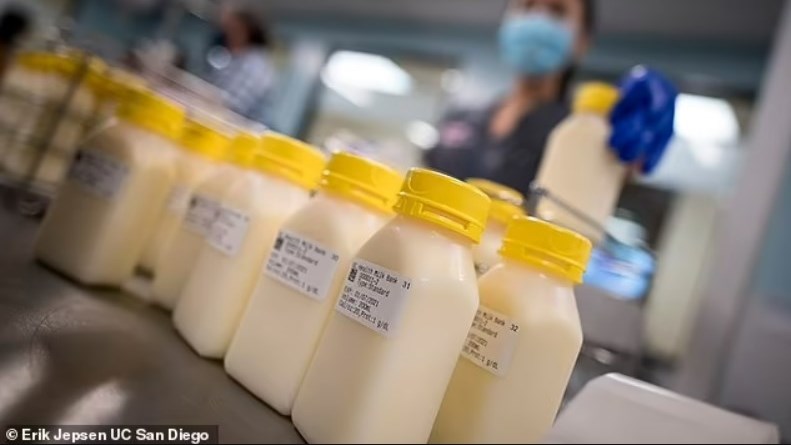International
Institute tests breast milk as treatment for various diseases─── 07:44 Fri, 28 Oct 2022

The world's first breast milk institute has opened in California — where scientists will explore whether it can be used to treat a series of diseases.
The Human Milk Institute in San Diego, will trial breast milk as a therapeutic for chronic diseases, including heart disease, diabetes and breast cancer.
Decades of research has shown human milk strengthens babies' brains, immune systems and bones, but the lab's work will also explore its effect in adults.
The HMI's funding director, Professor Lars Bode, said: "Physicians and scientists at UC San Diego and elsewhere have been doing this work for a while, but largely isolated in their respective fields of interest.
"With the novel Human Milk Institute we have an opportunity to learn, coordinate and interact in a single, go-to place and be able to speak with one voice.
"Research can inform clinical care, clinical care can inform research and both can help educate."
ALSO READ: Why breastfeeding is important
The new, first-of-its-kind hub brings together various laboratories at the University of California, San Diego, which have been studying the nature, biology and therapeutic potential of human milk.
The pasteurised donor breast milk is delivered to hospitals and donation sites in California and the Southwest by courier or shipped by FedEx frozen, on dry ice from the milk bank.
Professor of pediatrics at UC San Diego School of Medicine and director of Mommy’s Milk Human Milk Research Biorepository, dr. Christina Chambers, said: "From the research lab to the neonatal intensive care unit, the HMI will bring us together in unprecedented ways to support our monumental efforts in discovering how human milk can help people of all ages.'
Breastmilk provides crucial nutrition to infants with a near-perfect mix of vitamins, protein and fat, which primes babies' immune systems to fight infections.
These bioactive components could prove integral to developing new drugs for hard-to-treat conditions.
"Our findings could also help reduce the risk of heart attack and stroke in adults,’ he said.
The institute also includes community outreach and education programs, as well as a milk donation bank where altruistic mothers can drop off breast milk to be pasteurized and analyzed for any possible contaminants as well as nutrients.
ALSO READ: Plant-based medicine tested to treat tuberculosis
Breastfeeding rates in the USA vary by state but are overall high.
The Centers for Disease Control and Prevention found that of babies born in 2019, 83% had been breastfed for some part of their early lives.
Nearly 56% were being breastfed at six months, the amount of time for which breastfeeding is recommended.
The establishment of the HMI comes on the heels of a year-long baby formula shortage, which is ongoing in many parts of the US.
At the height of the shortage, when panicked mothers were scrambling to find food for their babies, many were facing attacks online for not breastfeeding for free to bypass the scarcity.
In reality, there are many reasons why breastfeeding may not be possible for some women.
Women with insufficient glandular tissue cannot make milk.
New moms with health disorders that cause extreme hormone imbalances due to thyroid dysfunction or polycystic ovary syndrome may also have problems breastfeeding.
Why is the breast best, according to experts?
Mothers are urged to breastfeed if possible in order to give their infants the maximum dose of nutrients. Bottle-feeding can be costly for many parents struggling to cope with the financial burden of a new baby.
Formula milk also has varying levels of nutrients, decided by the provider. And it is often not easy for babies to digest.
However, babies who consume both breast milk and formula may not get enough vitamin D and still need drops or mothers who take supplements.
Many women who breastfeed incorrectly believe that this gives babies all the nutrients they need, said Dr. Carol Wagner of the Medical University of South Carolina in Charleston.














